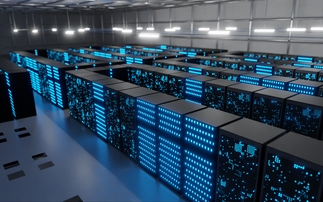The electricity used by PCs in our home and offices is expected to grow almost 50 per cent in 10 years in Europe alone. In addition, the life of a computer is becoming increasingly short and many feel not enough is being done to reduce the use of precious materials and potentially toxic chemicals contained in these products. Environmental campaigners are now pinning their hopes on a relatively unknown but potentially far-reaching piece of EU legislation, the Ecodesign Directive.
Manufacturers are now producing computers that are more electricity-hungry than ever, partly because of the increasingly sophisticated functions and graphics included in new computers. High performance computers especially made for gaming are fast becoming some of the most energy-guzzling appliances in homes. A recent survey of 300 households in France showed that within the last four years, the average electricity consumption of desktops had increased by more than 70 per cent.
We are also all tempted by the newest, latest models appearing on the market and are likely to change our computer more often than we did a few years ago. The narrowing life expectancy of a computer also means we are seeing increasing mountains of electronic waste which will pollute and create a variety of environmental and health related issues. As well as using electricity, computers may contain metals, steel, gold or copper, plus so-called rare earth metals, which may be subject to future shortages. Computers also contain plastics, which are still mostly manufactured from crude oil products, and some chemicals which can become toxic.
Computers of course play a central role in many people's lives, be it for work or leisure, so we must find a way of greening them - and the Ecodesign of Energy Using Products Directive might help do just that job.
Energy use is the first area where the policy is most likely to bite. So far the EU has mainly tried to get the computer industry to voluntarily comply with the Energy Star label standards. But the Ecodesign Directive may soon make these standards mandatory rather than voluntary. For "high-end" applications, environmental campaigners would also like to place limits on the growth in consumption for graphic cards and gaming processors. According to calculations by the Coolproducts for a Cool Planet campaign group, if the average computer were to consume as much as some of these more sophisticated gaming products, the energy consumption of desktop PCs would quadruple and require 40 new power plants to be built in Europe. However, manufacturers are reluctant to accept this.
Towards resource efficiency and toxics regulation
The EU already has a few pieces of legislation in place - known by the acronyms of RoHS, WEEE and REACH - which could potentially help to green the computer sector beyond the mere issue of energy efficiency, which is obviously only part of the story. However these policies say nothing about the way products should be manufactured in order to maximise re-usability and recyclability, and this is where the Ecodesign Directive could potentially come in.
According to some calculations, a 20kg computer carries an "ecological rucksack" of 1,500kg of environmental resources used in the manufacturing process. "If we could have more recycled, and recyclable, content in computers, they would cause much lower resource waste," says Stephane Arditi of the European Environmental Bureau, a Coolproducts campaign partner.
Most computers also include chemicals which may become toxic under certain circumstances - such as PVCs and brominated flame retardants (BFRs). Many computers are sent outside Europe to be re-used, recycled or recovered. But in many cases these activities are not carried out according to sound standards and create serious health hazards because of emissions of dioxins and furans. Technology exists to manufacture computers without hazardous substances and some major computer manufacturers have voluntarily committed to make all products free of these substances by 2015. But the restriction of PVC and the whole group of BFRs is not yet required for all products under current EU regulations.
As existing laws do not go far enough to seriously green the computer sector, environmental campaigners are now pinning some hopes on the Ecodesign Directive, arguing that this policy should include requirements for manufacturers to increase re-usability and recyclability of computers and to extend product life by making them easy to upgrade and repair. They also think the Directive should set minimum requirements for hazardous chemicals contained in computers. At the moment manufacturers are only required to disclose mercury content.
Germana Canzi is editor of Coolproducts.eu, a campaign to set ambitious minimum requirements for energy efficiency and other environmental aspects of products sold in the European Union







